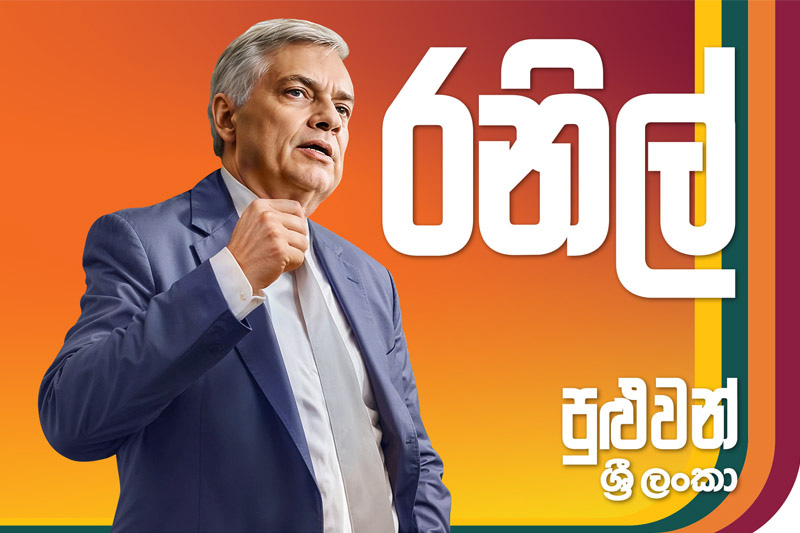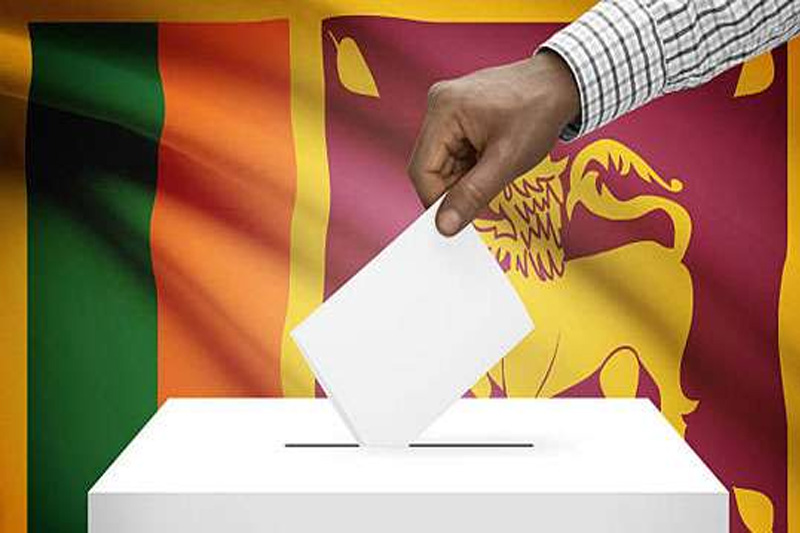With less than three weeks before the election, Sri Lanka's Election Commissioner announced that each presidential candidate can spend up to Rs. 1.8 billion, equating to Rs. 109 per voter.
However, enforcing the spending limit raises concerns as campaign costs for rallies and advertisements are significant. Six organizations have introduced an online tool to monitor compliance with campaign finance laws for the 2024 election, advocating for transparency.
Despite efforts to enforce financial regulations, doubts remain about whether the Rs. 1.8 billion budget is sufficient for effective campaigning. Campaign finance breaches could result in disqualification, even after winning. Past elections show the difficulty of tracking hidden costs, like rallies and logistics.
"During the Janatha Vimukthi Peramuna (JVP) campaign, they are spending around 400,000 to 500,000 rupees on cutouts for the election offices.
From what we've heard, they are giving around 1 million rupees per office. If they are spending 1 million rupees on each office, how much in total are they spending?
Therefore, attention is being drawn to the Election Commission regarding this matter, and it is necessary to investigate the funds they are spending. Because it is said that they have raised these funds by collecting money from people. So, it’s important to look into how these people received the money."
Meanwhile "Brand Ranil," a prominent figure in this election, is lauded for stabilizing Sri Lanka’s economy post-crisis, but his electoral track record and accusations of corruption tarnish his image. While Ranil's financial reforms have boosted the economy, competitors exploit public distrust in his leadership.

Despite his successes, emotional and credibility factors will play a key role in determining his chances of securing over 50% of the vote
However, SJB candidate Sajith Premadasa, NPP leader Anura Kumara Dissanayake, and President Ranil Wickremesinghe are projected to spend over Rs. 130 billion combined on rallies and events, far surpassing the legal limit.
According to preliminary data, Premadasa aims to hold 120 rallies, Dissanayake 100, and Wickremesinghe 84, with additional smaller events significantly inflating campaign costs. Of the 39 initial presidential contenders, only ten are currently engaged in active campaigning.
While candidates are required to submit expenditure reports to the Elections Commission within 21 days of the election, campaign managers argue that the Rs. 1.8 billion budget is insufficient given the high cost of election propaganda.
There is concern over the challenge of enforcing spending regulations, particularly for expenses related to rallies and below-the-line activities like posters and logistics, which are difficult to monitor.
The Election Commission has warned that violations of these regulations could lead to candidates being disqualified, even after winning the election.
The Executive Director of PAFFREL (People’s Action for Free and Fair Elections), revealed that some of these candidates have not even established party offices. He further noted that only ten candidates have secured airtime to present their policies to the public.
There are even reports that some of these candidates have not been located.
This year, 39 individuals initially entered the presidential race, although one has since passed away. Currently, only ten candidates are actively participating in campaign activities.
This year’s election marks the highest number of candidates in the country’s presidential election history.

For the first time, Sri Lanka's upcoming presidential election on September 21 will be subject to campaign finance regulations, following the introduction of the Regulation of Election Expenditure Act in January 2023.
According to a gazette notification dated August 16 and published recently , each candidate is allowed to spend a maximum of Rs 109 per elector for election campaigning activities, totalling Rs 1,868,298,586 (approx $5 million) per candidate.
The expenditure limit per candidate has been set at 60 per cent of the total amount, while political party secretaries are allowed 40 per cent for their candidate's election campaign activities.
The parties must submit expenditure reports to the Elections Commission within 21 days of the election results being declared, the notification stated.
A record number of 39 candidates are in the fray for the upcoming presidential election.
Incumbent president Ranil Wickremesinghe, the main opposition leader Sajith Premadasa, and the leader of the Marxist Janatha Vimukthi Peramuna (JVP) Anura Kumara Dissanayake are the front runners.
Whilst the concept received a positive acceptance, the issue is how can it be regulated given that ‘one’ election rally can cost approximately Rs. 300 million – the pre rally advertising and point of sale, the day of the event costs like the main stage, three colour backdrop, power speakers, two large cut outs on the side of the stage, a poster with a frame that was given to sections of the crowd with the candidates face for branding purposes, chairs and food/drink for all participants, special food for guest speakers, cost of a band/entertainment after the event, busses used for transport, etc. we also saw in some cases a giant marquee was erected.
Which means the total budget of 1.8 billion will be under severe pressure given that a 30 second TV spot at prime time for an election candidate costs almost a million rupees.



